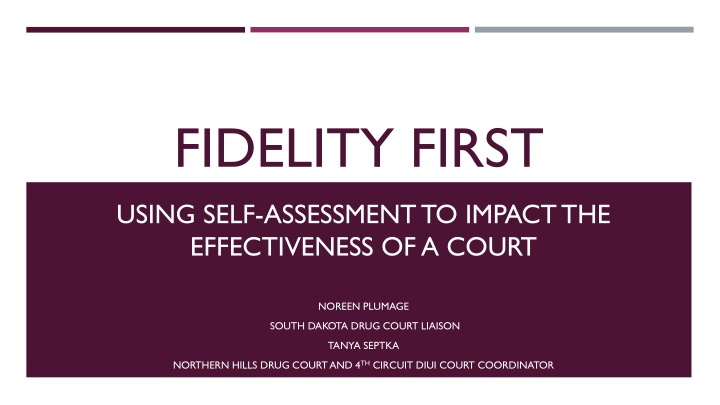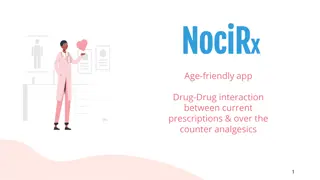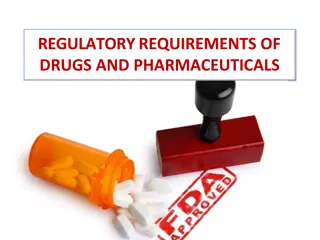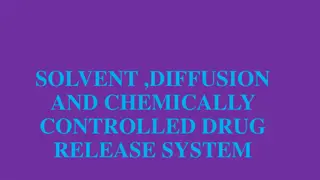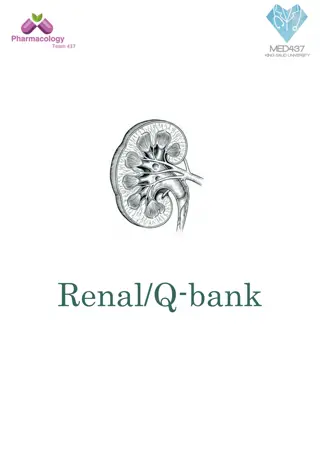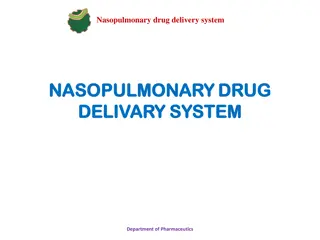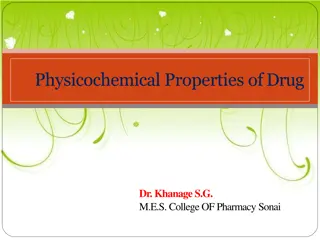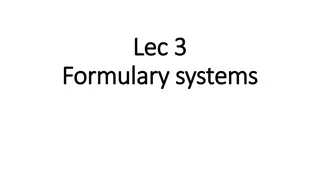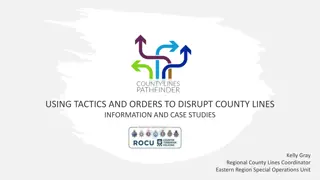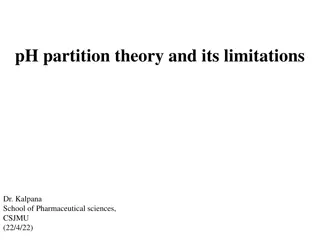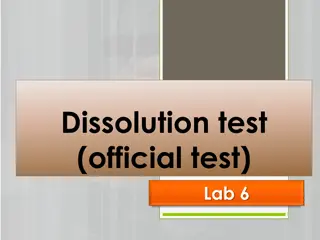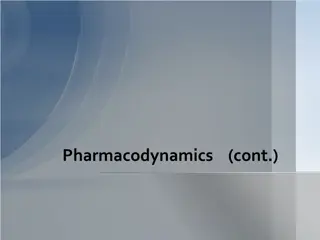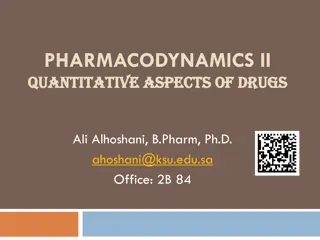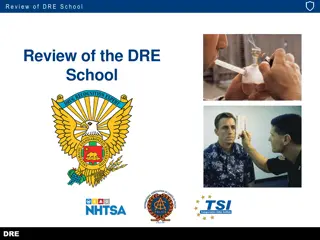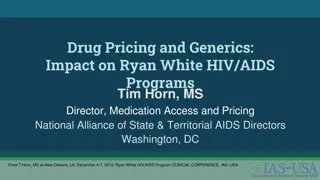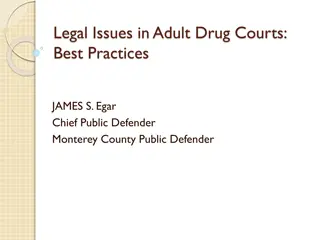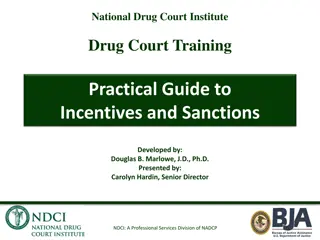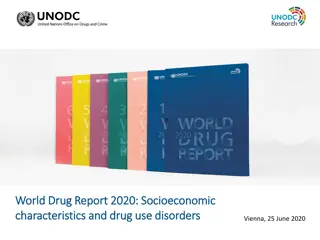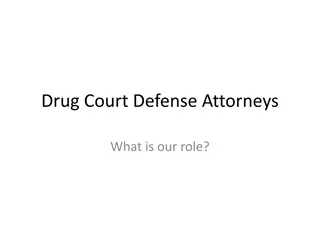Impact of Self-Assessment on Court Effectiveness in Drug Court Programs
Using self-assessment to impact the effectiveness of drug court programs is crucial for ensuring fair and consistent behavior modification. This approach enhances visibility, ensures accountability, and identifies areas for improvement. Success in drug court programs requires a thorough evaluation process and proactive measures to address challenges. By owning the success of the court through self-assessment, teams can enhance overall efficiency and participant outcomes.
Uploaded on Sep 08, 2024 | 1 Views
Download Presentation

Please find below an Image/Link to download the presentation.
The content on the website is provided AS IS for your information and personal use only. It may not be sold, licensed, or shared on other websites without obtaining consent from the author.If you encounter any issues during the download, it is possible that the publisher has removed the file from their server.
You are allowed to download the files provided on this website for personal or commercial use, subject to the condition that they are used lawfully. All files are the property of their respective owners.
The content on the website is provided AS IS for your information and personal use only. It may not be sold, licensed, or shared on other websites without obtaining consent from the author.
E N D
Presentation Transcript
FIDELITY FIRST USING SELF-ASSESSMENT TO IMPACT THE EFFECTIVENESS OF A COURT NOREEN PLUMAGE SOUTH DAKOTA DRUG COURT LIAISON TANYA SEPTKA NORTHERN HILLS DRUG COURT AND 4THCIRCUIT DIUI COURT COORDINATOR
IF YOUR DRUG COURT ISNT WORKING, YOU ARE NOT DOING DRUG COURT
1 2 3 Pile of binders The learning curve I did it my way BARRIERS TO SUCCESS
PILE OF BINDERS
LEARNING CURVE
ONLY ELVIS, NOT IN DRUG COURT
Best Practice Standard IV Incentives, Sanctions and Therapeutic Adjustments INTERNAL WORKING DOCUMENT Best Practice Standard IV - Incentives, Sanctions, and Therapeutic Adjustments Objective: Consequences for participants behavior are predictable, fair, consistent, and administered in accordance with evidence-based principles of effective behavior modification. N Non-Compliant P Partially Compliant C Compliant NOTES NOTES Advance Notice A Policies and procedures concerning the administration of incentives, sanctions and therapeutic adjustments are specified in writing and communicated to Drug Court participants and team members Requirements of phase advancement, graduation, and termination from the program are specified in writing and communicated to the Drug Court participants and team members Legal and collateral consequences of termination and graduation are specified in writing and communicated to the Drug Court participants and team members Opportunity to Be Heard B Participants receive a fair opportunity to explain their side of any dispute Participants are treated in an equivalent manner to similar participants in similar circumstances
Success? You own it!
Why Self Assess?? Teams own the success of Court Visibility and accountability Document and ensure effectiveness Identify training and resource needs Flag areas of changes in statutes
NO ONE ACES DRUG COURT
BEST PRACTICES FIRST EXPERTISE SECOND
TELL THE TRUTH
TIPS REGARDING EVALUATION
Best Practice Standard V Substance Abuse Treatment C Team Representation One or two agencies are primarily responsible to manage delivery of service Mental health representation is clinically trained Substance abuse treatment representation is clinically trained Core team member treatment providers regularly attend staff meetings and court hearings Client information is conveyed to the Drug Court team in an efficient and timely manner H Provider Training & Credentials Mental health representation is licensed and certified Substance abuse treatment representation is licensed and certified Treatment providers receive three days of preimplementation training Treatment providers receive periodic booster trainings Treatment providers receive monthly individualized supervision and feedback ONLY FRIDAY IS FRIDAY
Best Practice Standard I Target Population D Criminal History Disqualifications Barring legal prohibitions, potential participants charged with drug dealing are not automatically excluded Potential participants with violent histories are not automatically excluded Potential participants are not rejected if empirical evidence indicates a person can be managed safely or effectively in Drug Court E Clinical Disqualifications Potential participants are not disqualified for co-occurring mental health or medical conditions if adequate treatment is available Potential participants are not disqualified for being legally prescribed psychotropic or addiction medications if adequate treatment is available RED IS RED
IF YOU DONT KNOW, IT S RED
Best Practice Standard III Roles and Responsibilities of the Judge E Frequency of Status Hearings Participants appear before the Drug Court judge no less frequently than every two weeks during the first phase of the program Participants' court appearances are reduced gradually after participants have initiated abstinence and are engaged in treatment Participants appear before the Drug Court judge no less frequently than every four weeks until they are in the last phase of the program F Length of Court Interactions The Drug Court judge spends 3-7 minutes interacting with each participant during Drug Court sessions The Drug Court judge communicates that the participant's efforts are recognized and valued IF YOU DON T KNOW IT IS RED
Due Best Practice New/Repeat Judges III New November 15 Target Population I New Team VIII New December 15 Treatment V New Judges III Repeat January 15 Target Population I Repeat Team VIII Repeat Treatment V Repeat February 15 Testing VII New March 15 Incentives IV New Testing VII Repeat April 15 Complimentary TX VI New Incentives IV Repeat May 15 Census and Caseload IX New Complimentary TX VI Repeat June 15 Monitoring and Evaluation X New Historically Disadvantaged II New July 15 Census and Caseload IX Repeat Monitoring and Evaluation X Repeat August 15 Historically Disadvantaged II Repeat
2017 Fidelity Action Plan Owned by: = LATE Drug & DUI Coordinator = IN DANGER = COMPLETE Best Practice Standard V Substance Abuse Treatment Participants receive substance abuse treatment based on a standardized assessment of their treatment needs. Substance abuse treatment is not provided to reward desired behaviors, punish infractions, or serve other non-clinically indicated goals. Treatment providers are trained and supervised to deliver a continuum of evidence-based interventions that are documented in treatment manuals. Due Dates Oct Task Owner Aug Sept Nov Dec How Compass Point can implement MAAEZ & move it forward to follow Best Practice Standards Meet with the Director of Compass Point about MAAEZ Josh 9/5/17 Discuss MAAEZ with the Compass Point Providers Brie 9/7/17 9/14/17 9/29/17 ACTION PLANNING Discuss MAAEZ with the Drug Court Team Design a MAAEZ brochure/pamphlet Brie Steve 10/1/17 10/7/17 Contact local churches to locate a meeting location to Josh 10/15/17 hold MAAEZ Begin MAAEZ Josh 11/1/17
SHOW UP TRY BE HONEST http://ujs.sd.gov/Circuit_Court/Drug_Court/
